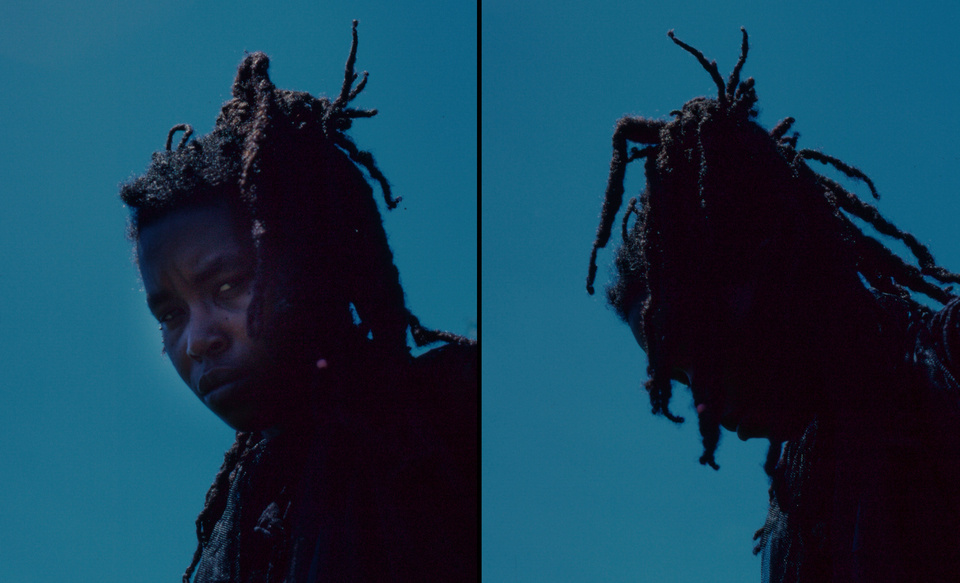
Courtesy of UC Santa Cruz Institute of Arts and Sciences.
Indexical presents: Moor Mother—a Philadelphia artist praised as part of “a new generation of visionary black storytellers” (NYTimes)—premieres a new video followed by a discussion of Black Quantum Futurism theory and practice with her collaborator Rasheedah Phillips. Weaving through haunting slave narratives as dystopian allegory, negro spirituals, and Black ritual, Moor Mother’s work points to a liberated future through Black Quantum Futurism, a project in partnership with author Rasheedah Phillips. Through a time of ecological and social disaster, she says, “I’m not saying, this is the end, we’re all doomed,” but rather that “I believe there is another way. So it’s about trying to get the audience to understand another way of digesting the truth.”
Black Quantum Futurism is co-organized with T.J. Demos of the Center for Creative Ecologies at UC Santa Cruz as part of the UCSC Mellon-funded Sawyer Seminar’s Beyond the End of the World research project, Indexical, and the IAS with the collaboration of The Humanities Institute and Kuumbwa Jazz Center.
About the Visualizing Abolition series:
This program is part of a series of virtual talks and events presented in conjunction with the exhibition Barring Freedom, co-organized by SJMA and UC Santa Cruz Institute of the Arts and Sciences (IAS). The online events feature artists, activists, scholars, and others united by their commitment to the vital struggle for prison abolition and are coordinated by the IAS in collaboration with Professor Gina Dent, feminist studies, UC Santa Cruz.
About the Speakers
Camae Ayewa (Moor Mother) is a nationally- and internationally-touring musician, poet, visual artist, and workshop facilitator, and has performed at numerous festivals, colleges, galleries, and museums around the world, sharing the stage with King Britt, Roscoe Mitchell, Claudia Rankine, bell hooks, and more. Her most recent album, Analog Fluids of Sonic Black Holes, is the culmination of all of her earthly experiences merged with all of her cosmic ones. On Analog Fluids, haunting slave narratives are presented as dystopian allegory and negro spirituals are flipped, remixed, and recaptured, only to be digitized into a symbiotic bio-morph program for the post-thumb drive age. It’s a record rich with the noise and chaos that affirm Moor Mother’s punk roots, yet it is also anchored in earthiness via the constant injection of Black ritual, poetry, and drums programmed to vibrate through the listener’s mitochondria.
Black Quantum Futurism Collective is a multidisciplinary collaboration between Camae Ayewa (Rockers!; Moor Mother) and Rasheedah Phillips (The AfroFuturist Affair; Metropolarity) exploring the intersections of futurism, creative media, DIY-aesthetics, and activism in marginalized communities through an alternative temporal lens. BQF Collective has created a number of community-based events, experimental music projects, performances, exhibitions, zines, and anthologies of experimental essays on space-time consciousness. BQF Collective is a 2016 A Blade of Grass Fellow, 2015 artist-in-residence at West Philadelphia Neighborhood Time Exchange, and had their experimental short, Black Bodies as Conductors of Gravity, premiere at the 2015 Afrofuturism Now! Festival in Rotterdam. BQF Collective frequently collaborates with other Black Futurists, Joy KMT, Irreversible Entanglements, Thomas Stanley, Ras Mashramani, Alex Smith to produce literature, present workshops, lectures, and performances.
Visualizing Abolition is organized by UC Santa Cruz Institute of the Arts and Sciences in collaboration with San José Museum of Art and Mary Porter Sesnon Art Gallery. The series has been generously funded by the Nion McEvoy Family Trust, Ford Foundation, Future Justice Fund, Wanda Kownacki, Peter Coha, James L. Gunderson, Rowland and Pat Rebele, Porter College, UCSC Foundation, and annual donors to the Institute of the Arts and Sciences.
Partners include: Howard University School of Law, McEvoy Foundation for the Arts, Jessica Silverman Gallery, Indexical, The Humanities Institute, University Library, University Relations, Institute for Social Transformation, Eloise Pickard Smith Gallery, Porter College, the Center for Cultural Studies, the Center for Creative Ecologies, and Media and Society, Kresge College.